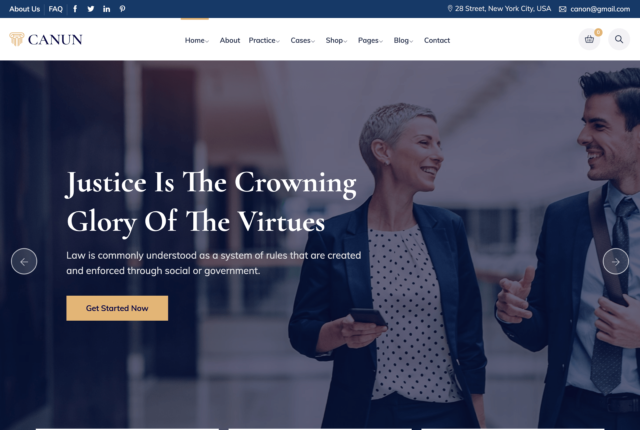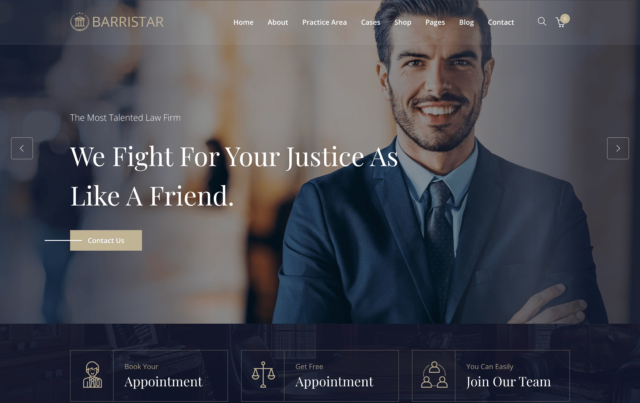When a law firm partners with a marketing agency, the goal is to boost online visibility, attract more clients, and enhance the firm’s reputation. However, some marketing agencies take advantage of this partnership by asserting ownership over the firm’s website, content, and domain name. While this might not seem like an issue initially, it can cause significant problems for law firms in the long run. In this article, we’ll explore why this practice exists, how it works, and why it’s a bad idea for law firms to allow an outside agency to control their digital assets.
1. Understanding the Ownership Trap
Many marketing agencies offer attractive website design, SEO, and content creation packages to law firms. However, buried within the contract or terms of service, these agencies may assert ownership of the law firm’s website, content, or even the domain name. Essentially, this means that while the law firm is paying for the marketing services, they do not truly “own” their online presence.
Here’s how it works:
- Website Ownership: The agency designs and maintains the website but retains ownership. If the law firm decides to switch agencies or end the contract, they may lose access to the website altogether.
- Content Ownership: The agency writes the blog posts, practice area pages, and other legal content. However, once the contract ends, the law firm may not be able to keep or reuse the content.
- Domain Name Ownership: In some cases, the marketing agency registers the law firm’s domain under their own name, giving them full control over the firm’s web address. If the law firm wants to part ways with the agency, they may have to purchase back their domain or, in extreme cases, create an entirely new one.
2. Why This Practice Exists
Marketing agencies often claim ownership of websites, content, and domains as a way to ensure ongoing business and control over the relationship. It creates a situation where the law firm is dependent on the agency for its entire online presence. If the law firm decides to leave the agency, they may lose their website, their SEO-optimized content, and even their domain name, forcing them to start from scratch.
For agencies, this practice provides leverage to ensure long-term contracts and continued revenue streams. However, for law firms, it can become a serious liability and create a lack of flexibility.
3. Why This Is a Bad Idea for Law Firms
There are several reasons why law firms should avoid agencies that assert ownership over their website, content, and domain:
a) Loss of Control
When a law firm doesn’t own their website or content, it effectively hands over full control of their online identity. The firm is at the mercy of the agency for any changes, updates, or improvements to its site. This can limit the firm’s ability to pivot its marketing strategy or move to a different agency when necessary.
b) High Exit Costs
If a law firm decides to terminate its contract with an agency that owns its digital assets, it could face significant costs. In some cases, the agency may demand a buyout fee for the website or content. In worse scenarios, the agency may refuse to transfer ownership, forcing the firm to rebuild its digital presence from the ground up.
c) Reputation and SEO Risks
Losing access to a website and content can damage a law firm’s SEO efforts. Years of building online authority and search rankings can be wiped out if a firm is forced to start over. The loss of blog posts, practice area pages, and other valuable content can result in a significant drop in web traffic and client inquiries.
d) Limited Flexibility
Agencies that claim ownership may restrict the law firm’s ability to make independent decisions about its digital marketing strategy. The firm may be locked into using the agency’s preferred hosting platforms, content management systems, and marketing tools, even if more effective solutions are available elsewhere.
e) Ethical and Professional Concerns
For law firms, ethics and professionalism are paramount. Entrusting an outside agency with control over your website and content can be risky. If the agency uses unethical marketing tactics or fails to uphold professional standards, the law firm’s reputation could be harmed by association.
4. How Law Firms Can Protect Themselves
To avoid falling into the ownership trap, law firms should take the following steps:
- Read Contracts Carefully: Before signing any agreements, law firms should carefully review the contract and ensure that they retain ownership of all digital assets, including the website, content, and domain.
- Insist on Ownership: Make it clear in writing that the law firm will retain ownership of its website, content, and domain, regardless of the length or status of the marketing contract.
- Register the Domain in the Firm’s Name: Always ensure that the law firm is the registered owner of its domain name. This ensures that if the firm decides to switch marketing agencies, it retains control over its primary web address.
- Request Transfer of Ownership: If the law firm is already working with an agency that claims ownership of its digital assets, it should request a transfer of ownership. While this may involve negotiating with the agency, it is a necessary step to regain control.
Key Takeaways
Law firms should be wary of marketing agencies that claim ownership over their websites, content, and domain names. This practice can lead to a loss of control, high exit costs, and damage to SEO efforts, leaving law firms vulnerable and dependent on the agency. To avoid these pitfalls, law firms must ensure they retain ownership of all digital assets, register their domain names under their own name, and carefully review contracts before entering into any agreements. By maintaining control over their online presence, law firms can protect their reputation, maximize their flexibility, and avoid costly disputes with marketing agencies.
Would you like more information about how to handle this scenario? Contact us here or call us at (877) 236-3656.








